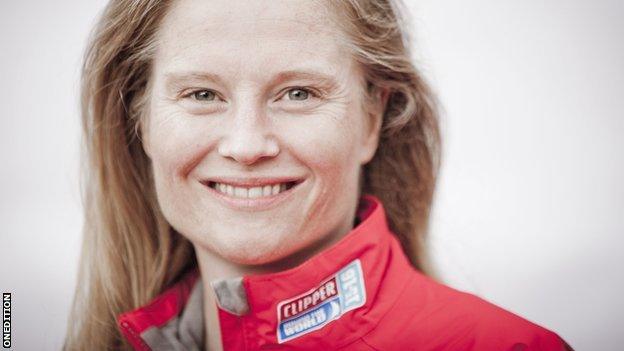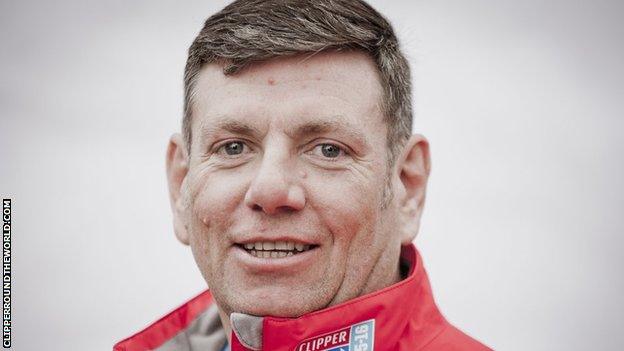Clipper Round the World yacht race deaths report calls for changes
- Published

Sarah Young was buried at sea after being recovered from the ocean
The organisers of the Clipper Round the World Race have been told they must "do more" to keep sailors safe on board its yachts following two deaths at sea.
Andrew Ashman, 49, from London, suffered a fatal neck injury when struck by a boom in September 2015.
Londoner Sarah Young, 40, died after being washed overboard during the Pacific leg of the race in April 2016.
A Marine Accident Investigation Branch (MAIB) report has now recommended a review of policies and procedures.
However, chief inspector of marine accidents Captain Steven Clinch stressed Clipper Ventures Plc "has already done much to address the safety issues".
The annual race covers 40,000 nautical miles and sees amateur sailors, under the guidance of a qualified skipper, racing over eight legs on a 70-foot yacht.

Andrew Ashman's brother says organisers were not to blame for the accident which claimed his life
Paramedic Mr Ashman's death was the first in the competition's 20-year history and his brother, Keith, said he did not blame the organisers.
Capt Clinch said: "The Clipper Round the World Race is an adventurous activity; operating with largely amateur and some novice crews, the yachts are often required to operate in some of the most hostile weather and sea conditions on earth.
"However, in such circumstances, there is a practical limit to how the safety of crews can be monitored and therefore, much reliance is placed on the expertise and judgement of each boat's skipper to ensure a strong safety culture is followed by everyone on board. This places a huge responsibility on one person, given the enduring challenges presented during the Clipper Round the World Race.
"While acknowledging that Clipper Ventures Plc has already done much to address the safety issues identified during the MAIB's investigations, I am nonetheless recommending that the company does even more to review and modify its yacht-manning policy and shore-based management procedures so that Clipper yacht skippers are effectively supported and, where appropriate, challenged to ensure safe working practices are always adhered to on board."
Clipper Race founder and chairman, Sir Robin Knox-Johnston, said the incidents "were caused primarily through momentary lapses in applying basic safety training".
However, he welcomed the report's findings and stressed the organisation worked to standards "often well in excess" of Maritime and Coastguard Agency guidelines.
He added: "Safety procedures are under constant review as a matter of course and we will continue to do so in light of the report's recommendations."